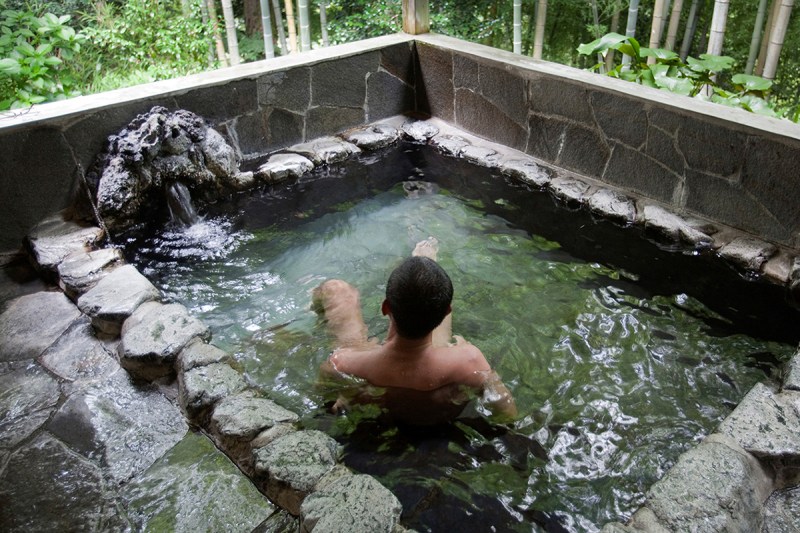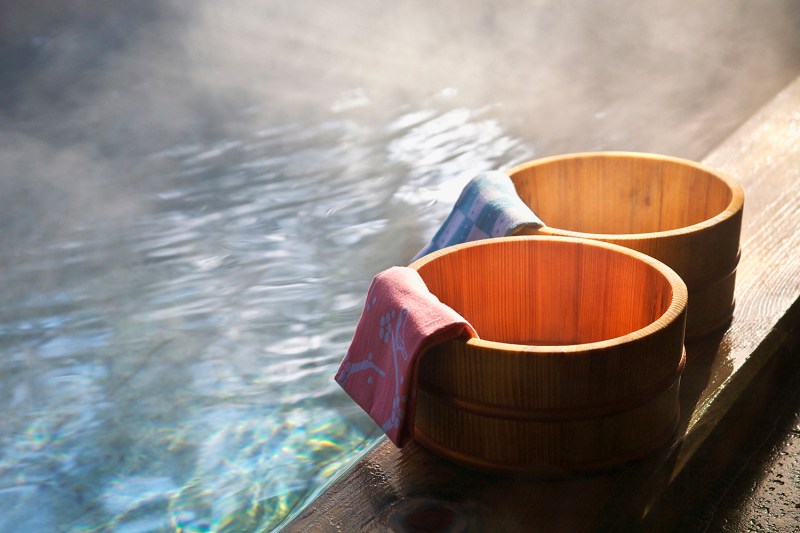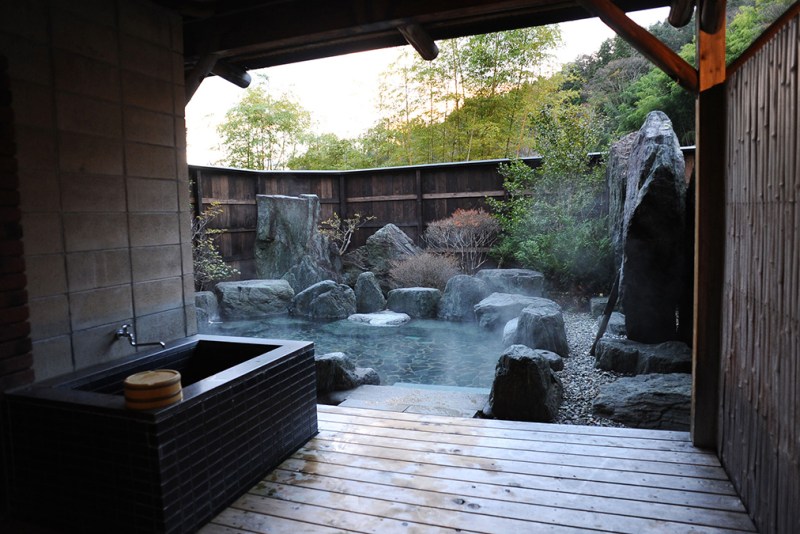
Most Americans only take one trip to Japan in their life, which is understandable given its location on the other side of the globe. So, if you do go, you absolutely must visit an onsen, a geothermally heated spring with water that contains multiple beneficial minerals. Trust us, you’ll never find another experience like this anywhere else in the world.
Japanese onsen have been in use since before records were kept. Thousands of them dot the country’s many islands. Onsen can be either free-standing or attached to a hotel or ryokan. The pools are, more often than not, separated by gender, either through partitions, separate bathing areas, or alternating bathing times.
It’s important to understand that onsen, however, are not water parks or bathhouses. They are distinguished places of leisure, peaceful meditation, light socializing, and regulations. Yes, like almost everything in Japan, there are strict rules of onsen etiquette one must follow when visiting. So, before you strip down and dive into a pool full of volcanically heated spring water, take heed of the unspoken Japanese onsen etiquette and protocol. Because the last thing you want is to be kicked out just when you’ve reached peak relaxation.

The 7 basic rules of the Japanese onsen
Rule #1: Wash before entering the onsen
Most Japanese onsen will have a shower area — in or just outside the bathing area — where you are required to wash your body. Entering an onsen with soap, dirt, or sweat on your body is unacceptable and grounds for dismissal from the spring. Take this moment as an opportunity to thoroughly scrub down and think of it as a preparation for a full-body skin treatment. After all, the spring is full of natural compounds and minerals that are great for the skin.
Rule #2: You must be completely naked
Foreigners might have a hard time with this one, but there’s no way around it. In Japan, clothing, towels, and any other garments are considered sullied or “dirty” and should never, ever be brought into an onsen. Nudity is expressly required, but really, it’s no big deal. If you’ve ever had to shower in gym class (who hasn’t?), nudity in an onsen is much less embarrassing. That’s because (a) you’re no longer a squeaky-voiced teenager, (b) no one cares what you look like, and (c) you definitely won’t get towel-snapped. That being said, some Japanese onsen allow for bathing suits, but this is rare (and such an onsen will usually not provide the most authentic experience) and is typically found in more tourist-friendly hotels and resorts, if at all.
Rule #3: Modesty is appreciated
While nudity is required, modesty is expected. Use your small towel to casually hide your nether regions as you move from the changing room to the shower to the onsen and back again. You’ll notice most Japanese men and women doing the same.
Rule #4: Never dip your towel in the water
This harks back to Rule No. 2. and the notion that towels are dirty and should not come into contact with the water. Most bathers simply wear the small cloth they are given at check-in to the onsen on their heads. It may look funny, but it’s the easiest way to not lose your towel and not dirty the water at the same time. When everyone else is doing it, you won’t feel as ridiculous sitting naked in a 110-degree tub with nothing but a napkin-sized towel on your head.
Rule #5: Don’t go under (or get your hair in the water)
It’s pretty much forbidden to dunk your head under the water in an onsen — and for good reason. No one wants mouth germs floating around in an environment where bacteria thrive. It’s also a good idea never to dip your hair into the water, mostly to prevent oils and residual grooming products from dirtying the water, but also to simply keep hair out of the bath drains (they do drain and clean them often).
Rule #6: No exposed tattoos allowed
Sorry, but this is a big no-no in a country where most people still associate tattoos with Japan’s mafia, known as the Yakuza. If you’ve got small tattoos that can be covered with a waterproof bandage, you shouldn’t have any trouble getting in, but if you’re tatted from head to toe, your best bet for visiting an onsen is to book a private one through a ryokan (traditional Japanese inn). Some onsen around Tokyo are specifically geared toward foreigners and are more lenient when it comes to tattoos (and nudity, as mentioned above), but they are few and far between.
Rule #7: Stay and relax after your dip
Most Japanese onsen have areas to relax after your stay in the hot spring. From hot sand rooms to small bars to lounge areas with massaging chairs and glasses of Kirin Ichiban beer or sake (Japanese rice wine), these facilities are the cherry on top of the onsen cake, and you should take advantage of them while you can. Where else are you going to be able to nap under a pile of heated sand? Only in Japan!

Is a Japanese sento the same as an onsen?
If you do go to Japan and want to relax with a soak in one of the public baths, you may see there is another type of public bath, called a sento, and it’s not the same as an onsen.
While both a sento and an onsen are hot water baths, an onsen uses water that’s heated volcanically, which is why they are always located near a volcanic mountain. The water in an onsen contains natural minerals and meets the standard set by Japanese law. On the other hand, a sento is generally located in the center of a city or town, and instead of using spring water, the water in a sento is from either tap water or water drawn by a nearby well and artificially heated. The water in a sento doesn’t contain natural minerals, but often things like artificial bathing salts are added to bring the experience somewhat closer to an onsen.
One benefit to a sento is that the experience there is generally significantly less expensive than at a true Japanese onsen, often coming in at around half the cost. So it is a potentially good choice for travelers on a budget who want a traditional Japanese bathing experience.


